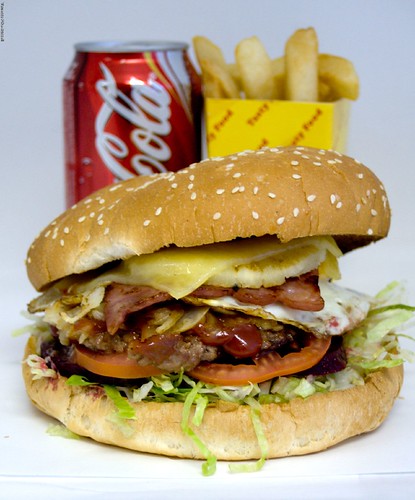The following is a guest post that I was excited to contribute to ING Direct's blog, We the Savers last week. Re-posting here for those of you that didn't get a chance to read it!
"The chief cause of failure and unhappiness is trading what you want most for what you want now." -Zig Zigler

Crisp, sugary-sweet bacon. Hot, deliciously salty french fries. Food so mischievously tasty that you close your eyes as you savor those few seconds of blissful indulgence. So bad...but OH. SO. GOOD.
Most of us know what foods are particularly bad for us, but at times we still fall into the trap of short-term pleasure at the expense of long-term health (we are, after all, only human). We know that fatty, greasy foods corrode and clog our arteries. But the catch is that they do it slowly. If there were instant "artery clogged!" flags or side pains for every french fry consumed, it might be easier to say no. But instead, we say yes - hoping that in 30 years our arteries won't be that bad.
So how conscious are you when it comes to spending money? How are your short-term habits contributing to your long-term goals? Are you clogging your financial arteries for the sake of fleeting indulgences?
As I've written in previous posts (See 3 Little White Lies We Tell Ourselves When Spending Money), we all have our financial weak spots. Here are some seemingly-innocuous habits that may be slowly clogging your financial arteries:
- Regularly purchasing items you don't need or that you don't use
- Spending money before you've earned it ("I'll be rich one day" or "I have a big paycheck coming, so I'll spend as though I have it already")
- Spending large proportions of your income or spending excessively on things that don't ultimately enhance your quality of life (for example: spending $100 on drinks at the bar. Was it really necessary?)
- Letting cable or cell phone companies over-charge you because you don't pay attention to your bills before paying them.
- Justifying purchases you know you shouldn't make by saying "I'll figure out how to pay for it later"
This is by no means a comprehensive list. It is meant to get you thinking. What spending (or non-saving) habits of yours are not contributing to a healthy financial future? If you magnified the impact of each financial habit by 100, would the result be positive or negative? And in what areas should you give yourself credit for building a strong financial foundation?
For many of us, principles of healthy eating are easier to conceptualize than healthy spending. So the next time you find yourself about to make a stupid financial decision - yes, you heard me, stupid - stop and ask yourself what the nutritional equivalent would be. Ten donuts? A bucket of KFC? A quarter-pounder with bacon? And then ask: is it still worth it? Or to reference Zigler, are you trading what you want most (ie: financial health and security) for what you want right now?
Looking for a simple way to kick-start your journey toward healthier financial habits? Check-out this Simple 4-Step Budget template (created with Google Spreadsheets):